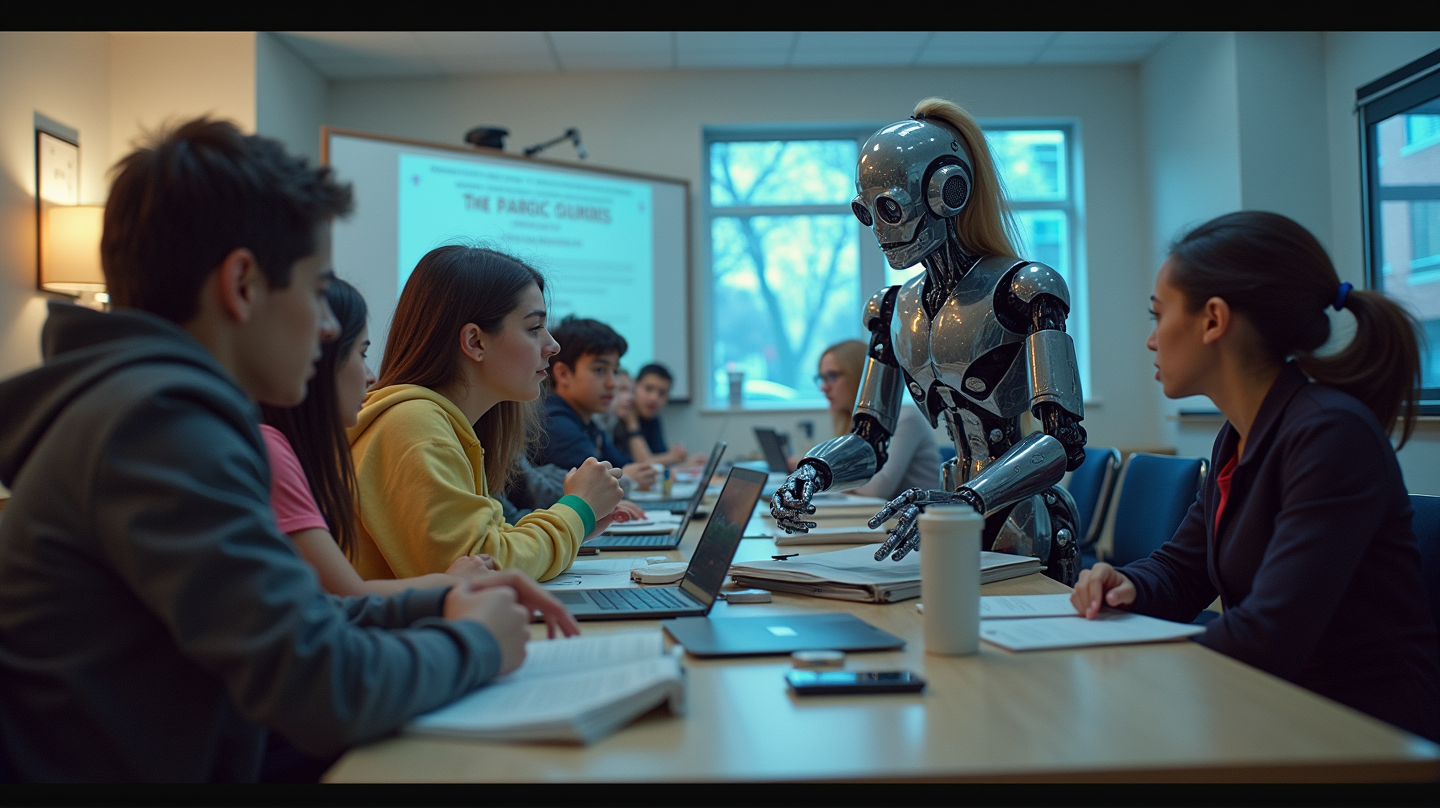In the sparsely charted waters of AI in education, Oakland teachers are pioneering their paths, wrestling with the nuances of incorporating artificial intelligence tools into their classrooms. With limited guidance from the Oakland Unified School District, educators find themselves at the forefront of a technological revolution, where innovation meets tradition in unexpected ways.
Embracing or Evading AI: The Divergent Teacher Approaches
Calupe Kaufusi, once reliant on platforms like ChatGPT for assignments, epitomizes the generational shift occurring as he recognizes AI’s limitations. For some educators, like those at McClymonds High, integrating AI into curricula is second nature, while others raise their shields, wary of its potential to shortcut student effort.
Across the city, teachers are torn between incorporating AI into projects and lessons or rejecting it outright due to its environmental footprint and potential to foster academic laziness. According to The Oaklandside, some educators are innovating with AI, using it as a partner in designing engaging project-based learning, whereas others stick to tried-and-true methods, focusing on handwritten essays and face-to-face assessments.
The Call for Policy: A Framework in the Making
The conversation around AI in Oakland schools is not happening in a vacuum. As the district stirs towards formulating a comprehensive AI strategy, stakeholders like Kelleth Chinn, an instructional technology coordinator, ponder over how to steward this transition responsibly. Teachers and principals wield the power to decide AI’s classroom role while adhering to existing guidance that mandates citing AI where used.
VanCedric Williams and his committee’s tentative steps towards policy echo a statewide dialogue, with eyes keenly focused on discovering best practices and learning from others’ missteps. Chinn’s observations underscore the urgency for dialogue: “Lack of conversation merely leaves a void for confusion to flourish,” he notes.
AI as a Strategic Partner: Success Stories Emerge
Latitude High School provides a glimpse into a strategic embrace where AI revolutionizes traditional education methods. By weaving AI into computer science curriculums, students are challenged to understand and utilize this technology responsibly. Using GoGuardian for oversight, the school’s approach balances innovation with skill retention.
Regina Kruglyak’s experiment with AI to transform documents into podcasts marks a foray into redefining educational boundaries. This exploratory zeal fuels her mission to pivot teacher perspectives, driving them to harness AI’s capabilities instead of shrinking from its shadow.
Cultivating Critical Thinkers: Educators’ Primary Mission
Amidst the technological battleground, Oakland Technical High School educators rally for their students’ cognitive autonomy. Amanda Laberge and Shannon Carey champion projects that expose students to AI’s ethical and operational spectrums. Their conviction resonates through a mission succinctly stated: “Our aim is to nurture skills that build a foundation for adult life, AI notwithstanding.”
These conscientious crusaders demand an evidence-based approach from OUSD, inspired by recent data and studies on AI’s impacts on cognitive engagement and academic integrity. Their aspirations reflect a commitment not just to technology, but to the timeless tenets of critical thinking and literacy.
Pioneering a Balanced Future: Education in Transition
As Oakland’s schools tiptoe through the AI landscape, teachers like Joel Hamburger at Redwood Heights Elementary remind us of the immediate AI interplay, even among young students. His nuanced strategies for guiding elementary learners in their online explorations reflect the broader educational ethos: to equip students with transformative tools, all while ensuring they remain the thinkers and authors of tomorrow.
The narrative of AI in Oakland’s classrooms is not just a tale of technology, it is one of transformation and tenacity, a story of educators boldly navigating the confluence of the known and the uncharted, crafting paths that future generations will tread. The unfolding dialogue and the resilient spirit of Oakland’s teachers promise a future where AI is not just used but understood and harnessed for the betterment of all young minds.
